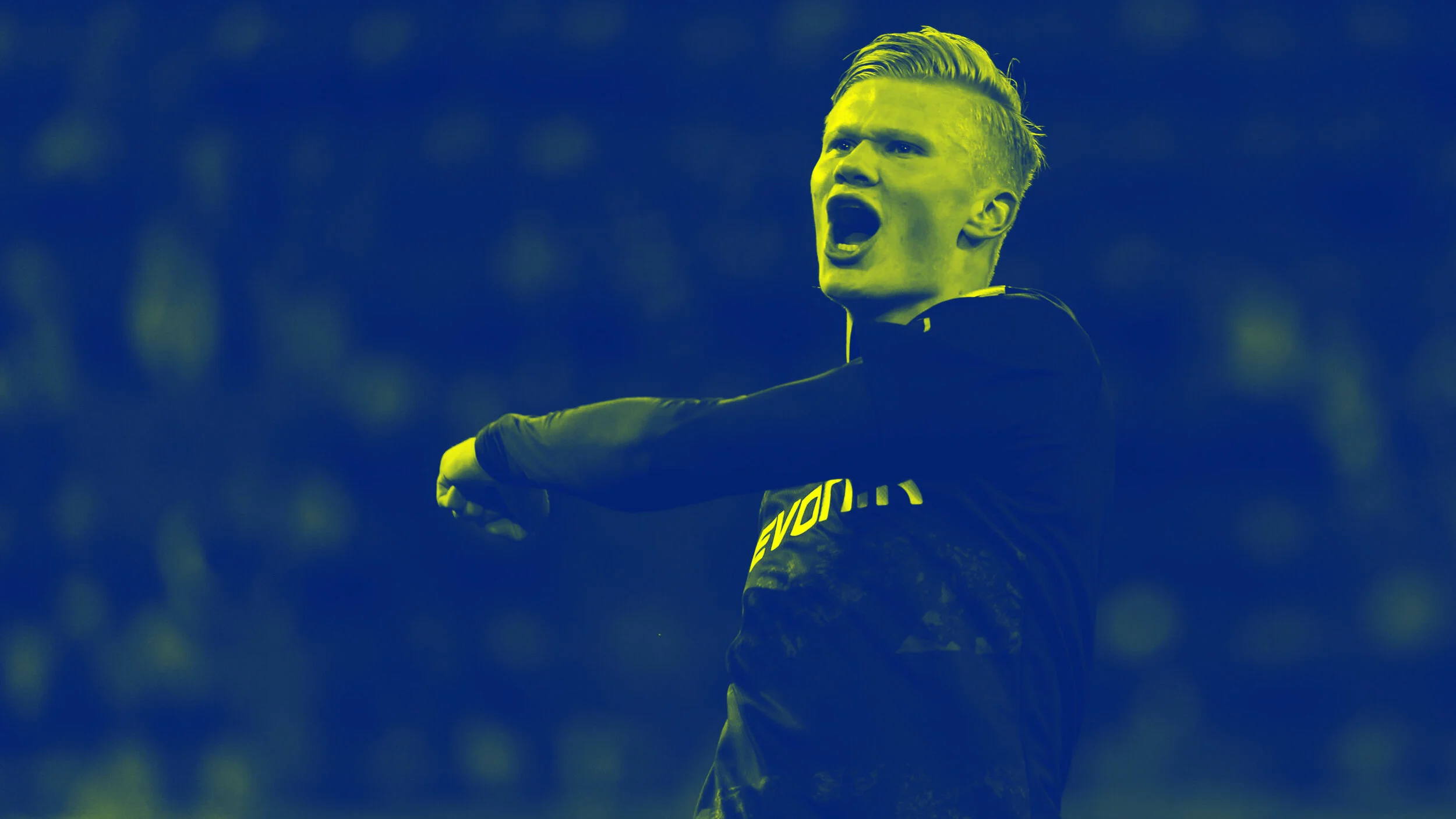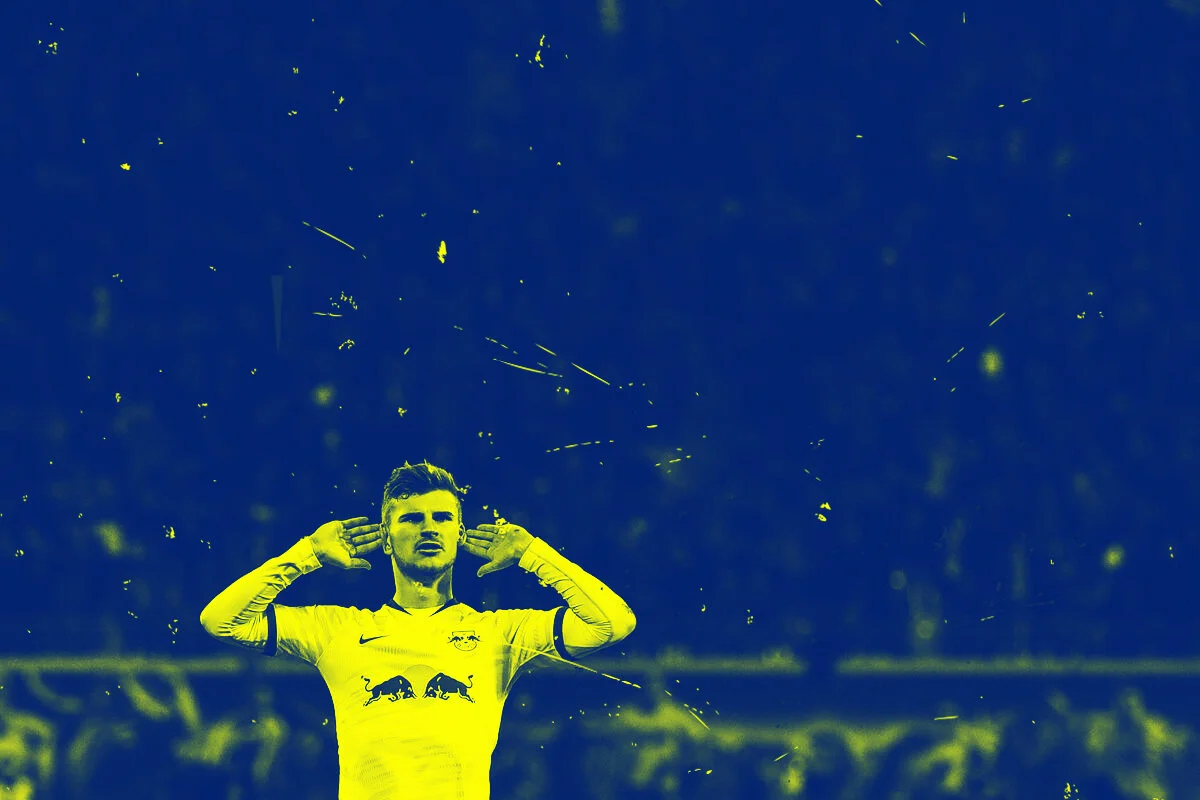The Bundesliga Theory of Time
The Bundesliga returned last weekend and oh, how it has been missed. Ryan Hunn was at the Olympiastadion for Hertha against Bayern and rounds up the opening weekend of the Rückrunde, including Erling Braut Håland’s brilliant debut.
Although humans argue that four weeks last the same no matter when they occur, the Bundesliga’s Winterpause will push anyone to question that notion. The days drag, the nights are long, the rest of the top five leagues have a jump start and still struggle to pull away.
In the Bundesliga’s absence, time had been a recurring theme. Christmas had seemingly only just happened before coming around once more. Global political events meant that the doomsday clock might have to start moving in seconds – as opposed to minutes – to prolong the inevitable. But, maybe most of all, whilst re-watching Atlanta, being reminded of the wonderful quote from Lakeith Stanfield’s character, Darius, “I would say nice to meet you. But I don’t believe in time as a construct, so I’ll just say we always met.”
The Bundesliga returned last Friday like we’d always met and, before anyone could blink, there are just days until the next round of fixtures. Yes, that’s how it works, but this week has whooshed by faster than the twenty minutes between Erling Braut Håland’s first and third goal.
So let’s go to Augsburg, for what was looking like a particularly familiar Dortmund performance. No length, or concept, or definition of time can be enough to forget the desire this team has to make things difficult for themselves. The home side went ahead thanks to Thorgan Hazard’s poor pass inadvertently launching an Augsburg counter attack, which ended with a tap-in for Florian Niederlechner. They were 2-0 ahead seconds after the break when Marco Richter fired over Roman Bürki from thirty yards out. The Dortmund keeper’s position – outside his six-yard box - was poor; his side’s position in this match even poorer.
Julian Brandt scored another wonderful goal as he continues to thrive in a deeper midfield role, before Niederlechner got a second to make it 3-1 Augsburg. It would be the catalyst for Lucien Favre to introduce Håland - der Brecher mit dem Babyface – sooner than had been expected. Speaking of time, the narrative around the young Norwegian, who arrived from Red Bull Salzburg during the winter break, was that he would need it.
“No length, or concept, or definition of time can be enough to forget the desire this Dortmund team has to make things difficult for themselves.”
In reality, he required three minutes to score his first. The second arrived eleven minutes after, with a third nine minutes after that. His impact was so huge that it masked a wonderful goal from Jadon Sancho, who became the first player this season to reach double figures in goals and assists in Europe’s top five leagues. When congratulated post-match by Dortmund Sporting Director Michael Zorc, Håland casually responded, “That’s why you bought me.”
It was a much-needed win for Dortmund, seeing as Schalke had beaten Gladbach the night before and Bayern would beat Hertha the following afternoon. In Gelsenkirchen, Alexander Nübel still has plenty of time to ponder his decision to leave for Bayern at the end of the season. On Friday, for 90 minutes, he witnessed his successor in the Schalke goal, Markus Schubert, put in a performance that suggests Die Knappen won’t miss the man they made captain last summer and who will leave for free in the next.
In Berlin, it was a good old-fashioned tale of two halves. Despite Bayern dominating possession, they would not register an attempt on target until a Philippe Coutinho volley in the 35th minute. Hertha were managing Bayern cleverly, absorbing pressure and hitting them on the counter, and it was 0-0 going into the break.
That all changed in the second half, when Bayern dominated the first fifteen minutes as they had in the first. They took the lead after an hour through Thomas Müller and had the ball in the net a couple of minutes later, but Robert Lewandowski’s effort was ruled out for a foul on Hertha goalkeeper Rune Jarstein. Ten minutes later, he scored again and this time it stood, giving the Pole his twentieth league goal of the season in 18 games. Thiago made it three – with the best goal of the game – before Ivan Perišić made it four, handing Hertha a reality-check in the process. No goals conceded in 332 league minutes, then four in 24. Time passes more slowly in some places, more rapidly in others*.
Over in Leipzig, Die Herbstmeister overcame a stubborn Union side, who were 0-1 up after ten minutes and remained so until the second half. When the equaliser came, it was via a wonderful Timo Werner strike that was hit, according to the equally extravagant commentary, ‘mit carajo’. Marcel Sabitzer would put the home side ahead before Werner made the game secure with his 20th league goal of the season, level with Lewandowski, in fewer minutes. Leipzig are now unbeaten in nine league matches - scoring three or more in each - since they slipped up in Freiburg on 26th October. They remain top and extended their lead in the process.
So, just the 34 goals in nine fixtures on the Bundesliga’s return, bringing some heat to a German winter that threatens to kick in after all. After the long month of the break, May will be here before we know it. With the top five separated by just seven points, and the seven sides above doomed Paderborn separated by six, there’s a lot to navigate before now and the end of the season, so we had better make time for it.
* From Carlo Rovelli’s ‘The Order of Time.’ Penguin Random House, 2018.




